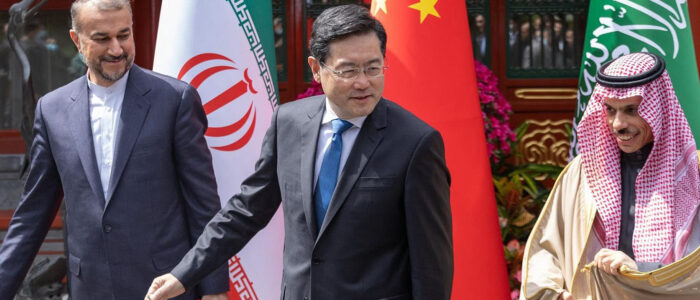Introduction
The Middle East is undergoing profound transformations with significant geopolitical implications. Since October 2023, historic changes have reshaped the region's political and social landscape, revealing both challenges and opportunities for stability. These shifts emphasize the delicate balance of power, national aspirations, and the ongoing search for peace.
Israeli-Palestinian Conflict
The intensification of the Israeli-Palestinian conflict, particularly in the Gaza Strip, has led to devastating humanitarian consequences. The suffering of Palestinian civilians highlights the urgent need for a comprehensive, internationally negotiated resolution that prioritizes Palestinian statehood. However, entrenched political divisions and complex regional alliances continue to obstruct lasting peace.
Israel's Security Strategy
Israel's pursuit of territorial expansion for security purposes, supported by Western allies, presents both short-term security advantages and long-term challenges. These include regional isolation and growing international criticism over the humanitarian costs of Israel’s actions. The need for a balanced approach to security and diplomacy is becoming increasingly apparent.
Lebanon, Syria, and Iran: Shifts in Regional Power
Lebanon is facing a decline in Hezbollah's influence, reflecting broader shifts in regional power. Meanwhile, Syria stands at a crossroads after the fall of the Assad regime, requiring significant reconciliation and rebuilding efforts. Iran, once a dominant regional player, is being sidelined by internal challenges and the rise of rivals like Turkey, which has capitalized on the shifting dynamics to expand its influence.
Turkey's Strategic Position
Turkey has emerged as a key geopolitical beneficiary in the Middle East, strategically positioning itself to fill the vacuum left by other declining powers. Its rise in influence has significant implications for the balance of power in the region, as well as for global diplomatic relations.
Regional Stability and the Role of the International Community
Despite transformative events, the Middle East remains precariously balanced. The risk of sudden upheaval underscores the need for proactive diplomacy and conflict prevention. The international community must play a pivotal role in addressing immediate crises while tackling the deeper drivers of instability, including economic disparity, political exclusion, and historical grievances.
The Human Dimension and Future Prospects
At the heart of any solution to the region’s crises are the people of the Middle East. Displaced by conflict, burdened by economic hardship, and yearning for a better future, their empowerment through civil society, inclusive governance, and investment in education and infrastructure is critical. The future of the region, while fraught with challenges, also offers opportunities for renewal, peace, and prosperity through collaboration and mutual respect.
